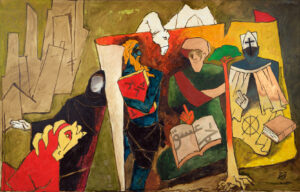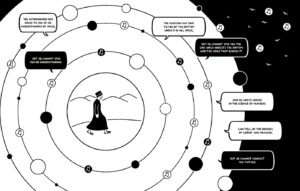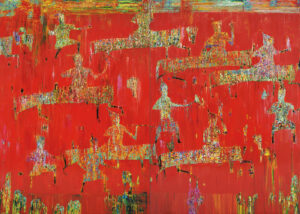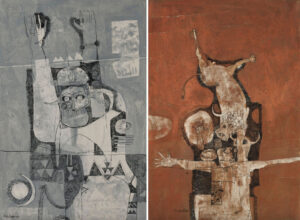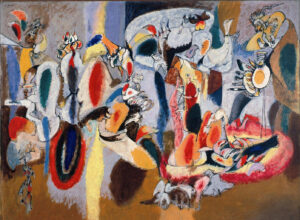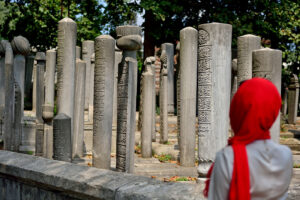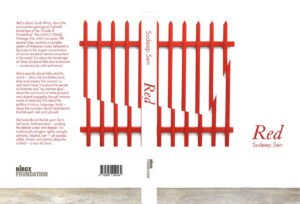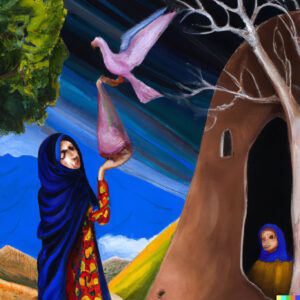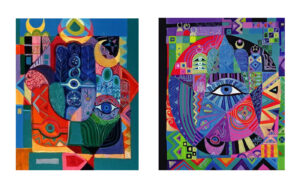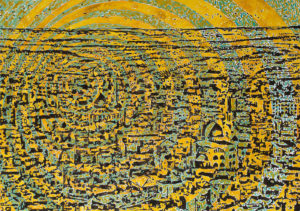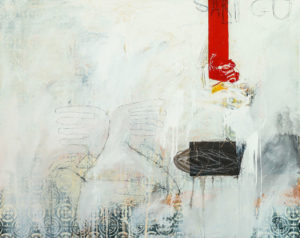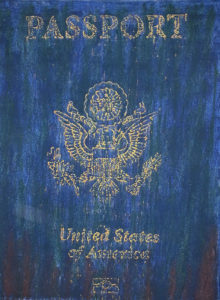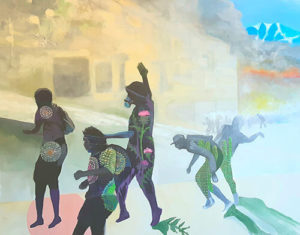Painting by Kehinde Wiley, “Mrs. Siddons” with a blackthorn background inspired by William Morris (courtesy artist Kehinde Wiley).

a poem by Sholeh Wolpé
Tall, stiff and spiny,
try to make it to the other side
and risk savage thorns.
We who left home in our teens,
children who crossed boundaries and were torn
by its thousand serrated tongues, we
who bear scars that bloom and bloom
beneath healed skins,
who have we become?
I ask myself:
is home my ghost?
Does it wear my underwear
folded neatly in the antique chest
of drawers I bought twenty years ago,
nest inside my blouse that hangs
from one metal hanger I’ve been meaning to discard?
Is it lost between these lines of books
shelved alphabetical in a language
I was not born to? Or here on the lip
of this chipped cup left behind
by my lover long gone?
I carry seeds in my mouth. Plant
turmeric, cardamom, and tiny
aromatic cucumbers in this garden.
Water them with rain I wring
from my grandmother’s songs.
They will grow, I know, against these blackthorn walls.
They can push through anything, uncut.
I left home at thirteen.
I hadn’t lived enough to know how
not to love.
Home was the Caspian Sea, the busy bazaars,
the aroma of kebab and rice, Friday
lunches, picnics by mountain streams.
I never meant to stay away.
They said come back
and you will die.
Exile is a suitcase with a broken strap.
I fill up a hundred notebooks with scribbles,
throw them into fire and begin to write again,
this time tattooing the words on my forehead,
this time writing only not to forget.
Complacency is communicable like the common cold.
I swim upstream to lay my purple eggs.
They say draw sustenance from this land,
but look how my fruits hang in spirals
and smell of old notebooks and lace.
What is a transplanted tree
but a time being
who has adapted to adoption?
Spirits urge and spirits go,
but I speak only to the future.
Perhaps it’s only in exile that spirits arrive.
They weep and wail at the door of the temple
where I sit at the edge of an abyss.
But even this is an illusion.
From Abacus of Loss, forthcoming from the University of Arkansas Press, March 2022.






